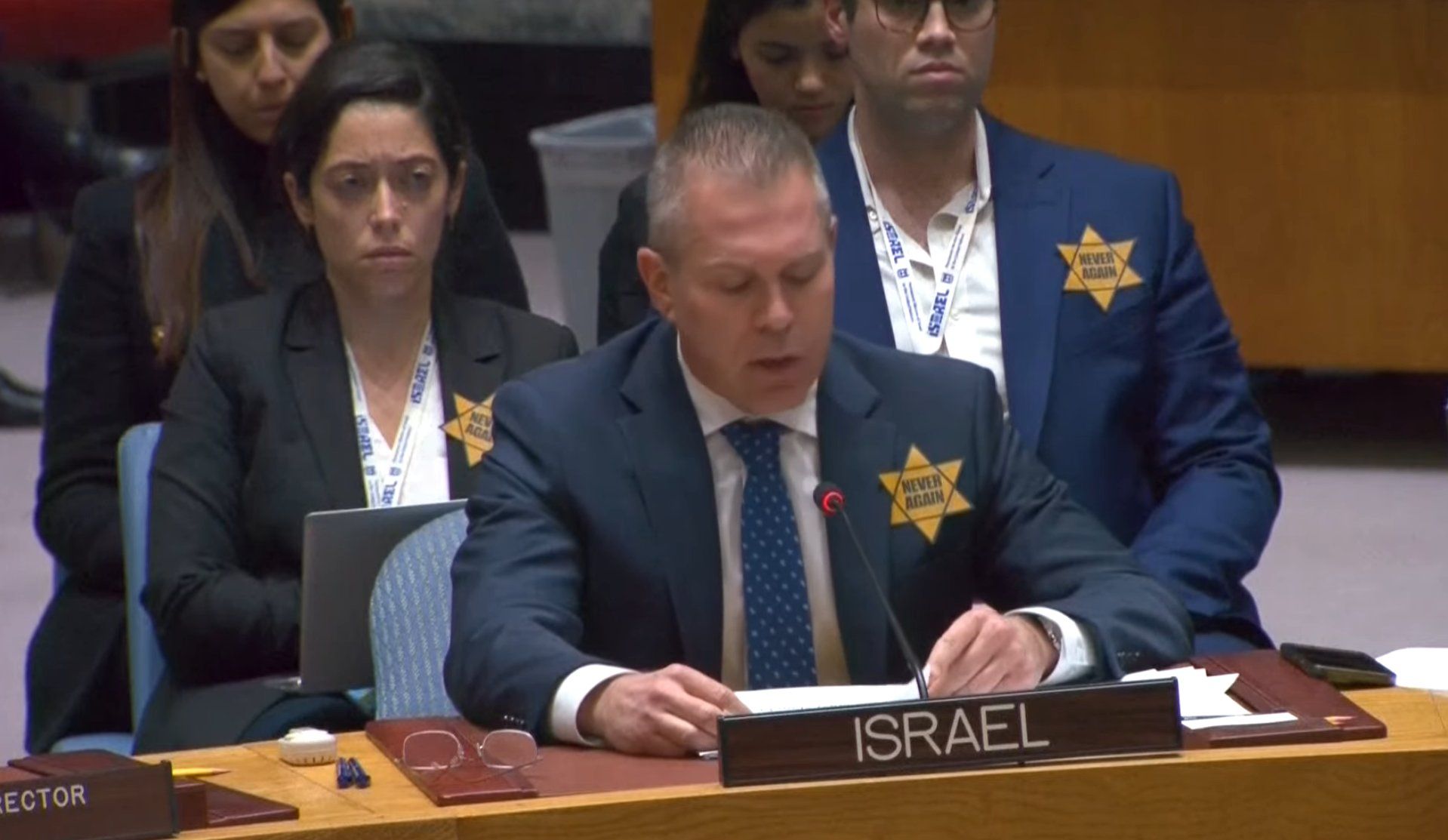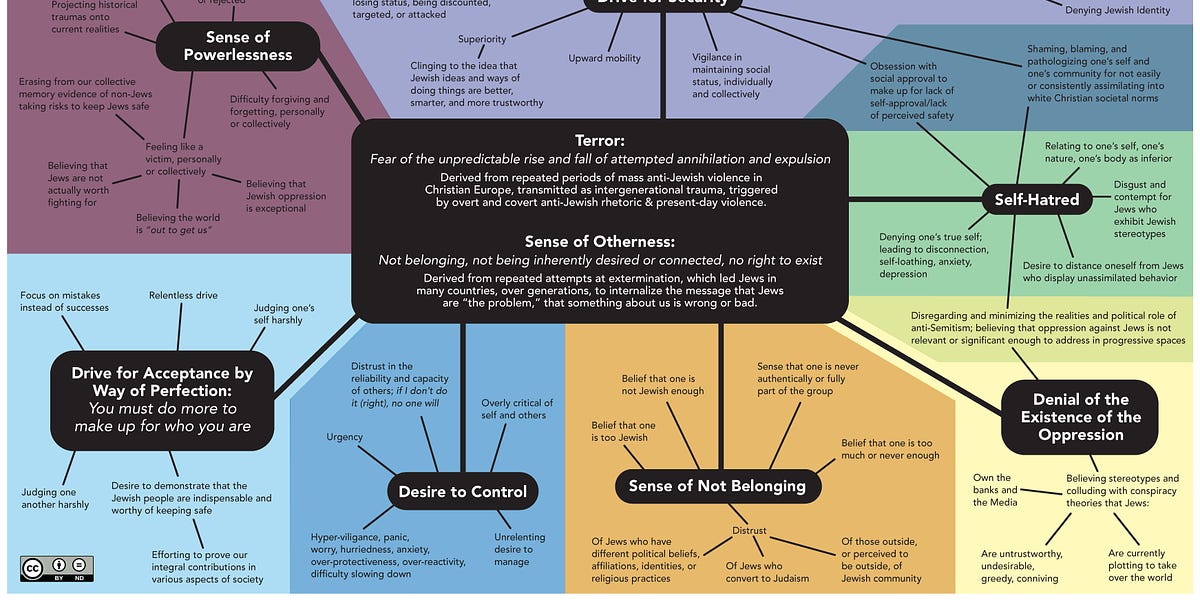Last weekend I attended the Make Amazon Pay summit in Manchester, UK. And although we were there to organise against corporate greed, many of the sidebar conversations I had were about... Gaza and the left’s response.
So although I touched on this topic in my last newsletter, I'm revisiting it this week. Because it relates to issues beyond Gaza, and to how the left positions itself in general.
* * *
The trap of comparisons
There's a concept called Godwin's Law, that's as old as the modern internet. It says that as an online discussion grows longer, the probability of a comparison to Nazis or Hitler approaches 1.
And in the context of the horrific events in Gaza unfolding right now, Godwin's Law is painfully evident. On one side of the battle for public opinion, some international progressive voices are referring to Gaza as a 'concentration camp’, labelling the Israeli government a ‘Nazi-type regime’, or comparing the destruction wrought by Israel's bombs to the Warsaw Ghetto.



Nazi imagery everywhere. (Source)
On the other, Netanyahu claims that “Hamas are the new Nazis", and that Israeli children had to “hide in attics like Anne Frank.” The Israeli UN delegation shows up to work wearing yellow stars. Right wing media in Israel publish Nazi-esque cartoons depicting Palestinian fighters as cockroaches. And a US member of congress compares Palestinians to... yes, Nazis.
The mask has come off completely. Speaking to US Congress 🇺🇸 Rep. Brian Mast compares Palestinians to Nazis in order to suggest that there is no such thing as an "innocent civilian" in Gaza.pic.twitter.com/yCbBjvDmSp
— David Adler (@davidrkadler) November 1, 2023
I don't know where all this will lead us, but certainly not to a good place.
A strategic mis-step
(Some quick context. I fully support the Palestinian cause and believe Israel is practising apartheid. I also think the best way to combat bad ideas is with better ideas – clampdowns on freedom of expression irk me to the extreme.)
Now, the Israeli government and its US backers are acting according to their agenda. But I think we should focus on what we can control: ourselves.
Progressive activists have no excuse for using this kind of rhetoric. Not because it crosses some ethical line, but because just as when they refused to denounce Hamas' actions of October 7, it's simply unstrategic.

Progressives want a ceasefire in Gaza, humanitarian assistance, and a sustainable solution for peaceful coexistence between Israelis and Palestinians. To make any of this happen requires the involvement of the Israeli left, and progressive Jewish groups across the world. Jewish voices have been some of the most vocal against Netanyahu's current slaughter of Palestinian civilians. These groups have organised large-scale protests for de-escalation and peace, in both Europe and the US, as well as in Israel.
When some international progressives use Holocaust rhetoric, it alienates them from the left-wing Jews they need as allies to achieve their goals.1
Historical trauma and defensiveness
It's easy to see why. Trauma echoes through generations. The collective memory of centuries of antisemitism and the Holocaust is deeply ingrained in Jewish identity and consciousness today.

In his brilliant piece on this topic, Micah Sifry details "the sense of encroaching terror, [..] the drive for security" that defines how Jews navigate the world as a result of their history. And he explores how, in the wake of October 7, with a surge of antisemitic incidents in reaction to events in Gaza, all those traits are amplified:
Today, in the wake of October 7, several of these patterns are in overdrive, especially the paradox of seeking security from amassing state power while feeling an overwhelming despair at ever being secure.
Or as Adam Shatz puts it in the London Review of Books:
Hamas’s attack touched the rawest part of [Jews'] psyche: their fear of annihilation.
Considering all this, it's easy to see how Holocaust rhetoric will typically elicit a defensive response, even from progressive Jews. Which leads to doubling down, turning inward, more bridge burning... when Palestinians, Israelis, and the world need the opposite.
And worse, using Holocaust rhetoric isn't even necessary to convey the horror of what Israel is doing to Palestinians as I type. There's no need for comparison – the numbers and stories and images speak for themselves.
The case for Holocaust rhetoric
So why might some progressives be using this speech? Well, this is a time of high emotion. They may feel such comparisons are technically correct, and that it's their moral duty to call out evil when they see it. (I'd argue that activists should leave what's 'evil' to metaphysics; many terrible things have been perpetrated under the banner of moral duty. And that as with an overweight relative, something being X doesn’t logically mean you must call it so at the present time.)

But I'd like to give these progressives more credit here, and assume they know better than to give into their emotions. There must surely be a rational consideration in what they're saying. So on that front, I can think of two reasons:
First, for support. Like all extremist discourse, Holocaust rhetoric galvanises people. It channels collective rage; it's catnip for social media algorithms. And it can grow your members, funding, allies, drawing in anyone who is rightly infuriated by Israel's brutal response to October 7, and is looking for decisive pronouncements.
And second, for political advantage. There's an argument that to change harsh realities, it helps to mainstream certain terms. The boundaries between what‘s considered deviant and acceptable discourse are constantly shifting. For example, a decade ago saying that Israel was practising ‘apartheid’ towards the Palestinians was stated only by the left's radical fringe. But it's now part of polite conversation, thanks largely to a long-term effort to shift public opinion by rights groups and progressive commentators, from Human Rights Watch to Amnesty International and Israel-based B’Tselem.

But if any of these calculations feature in the strategy behind the language of my progressive colleagues, I wish they'd make it explicit. They should act with intention, and in full recognition that, like every opportunity, their chosen strategy comes with a price. Because by my reckoning, the long-term cost of using these terms far outweighs their short-term rhetorical power.
* * *
Peace in Gaza looks unlikely right now. But crisis is also opportunity. We need an end to this war, soon. Before it goes regional... or even global.
So I'm dismayed that, just weeks after many international progressives outraged their Jewish allies by refusing to denounce the Hamas attacks (something that any human should be capable of), they're at it again. Delivering a one-two punch to left-wing Jews: "We don't care about the men, women and children you lost. Oh, and the Jewish state is perpetrating a new Holocaust." And in so doing, they're making a strategic misjudgment.
Word choices are political choices. Progressive friends, let's think twice before doing anything that works against the goal of peace. Please.
1: Yes, I'm aware that some Jews on the far-left use these terms. But that still doesn't make it strategic.





